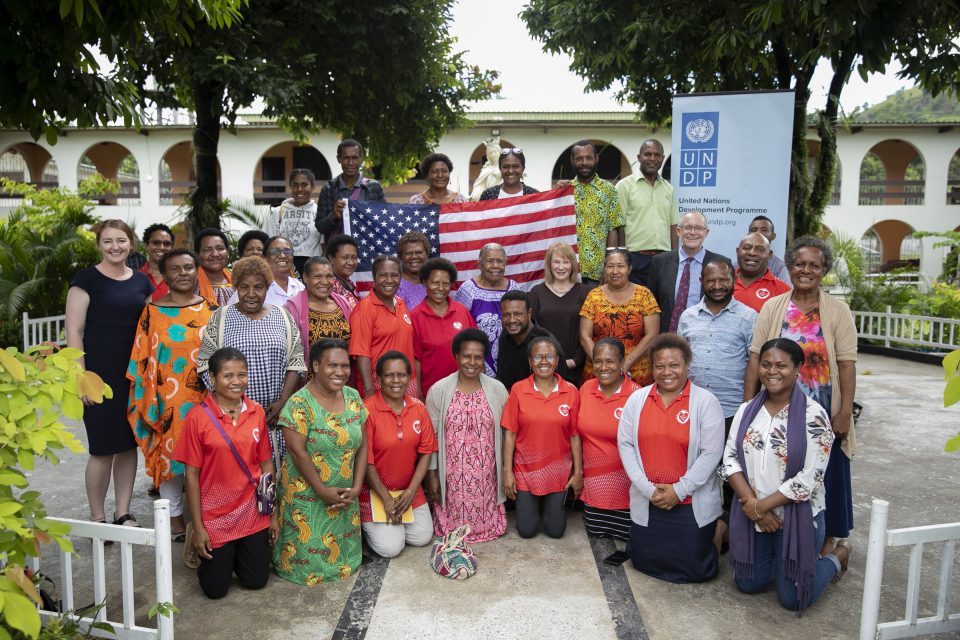The United Nations Development Programme (UNDP) and the Papua New Guinea Counsellors Association (PNGCA) have successfully completed a ten-day counselling training for staff and volunteers of safe houses that support survivors of gender-based violence (GBV) and sorcery accusation related violence (SARV).
The training, which took place in Port Moresby on 4-15th of March was held under UNDP’s ‘Strongpla Meri, Strongpla Nesen’ project, which is funded by the United States through its Bureau for International Narcotics and Law Enforcement Affairs.
A total of 30 frontline staff and volunteers from safe houses operating in Morobe Province and the National Capital District underwent the training.
The training equipped them with the foundational skills for providing safe and impactful psychosocial support services for survivors of GBV and SARV. They also learned about values guiding the work of responsible counsellors, the principles of establishing a safe space for survivors, and harmful practices that remain common among safe houses in Papua New Guinea that provide counselling services without formal training.
The participants were also visited by the Ambassador of the United States to Papua New Guinea, H.E. Ann Marie Yastishock, and UNDP Resident Representative, Nicholas Booth.
“Gender-based violence is one of the biggest challenges facing Papua New Guinea, which is why it is imperative that sufficient funding is allocated to ensure that survivors have access to quality counselling services. I am deeply proud of this partnership we have with local safe houses and the United States Government, and I hope we will continue our joint efforts to empower the country’s women and girls far into the future,” said Nicholas Booth, Resident Representative, UNDP Papua New Guinea.
“I commend each and every one of you here for taking on the responsibility of protecting women and children in your communities. As you continue your courageous work, please also make sure that you take care of yourselves, because without looking after your own welfare, you will not be able to excel in your efforts to help others,” said Ambassador Yastishock in her remarks.
In PNG, safe house services and access to counselling support are two key pillars of the GBV referral pathway for supporting survivors of violence. Increasing capacity among safe house staff and volunteers is key to ensuring that survivors of GBV and SARV receive high quality, informed support.


